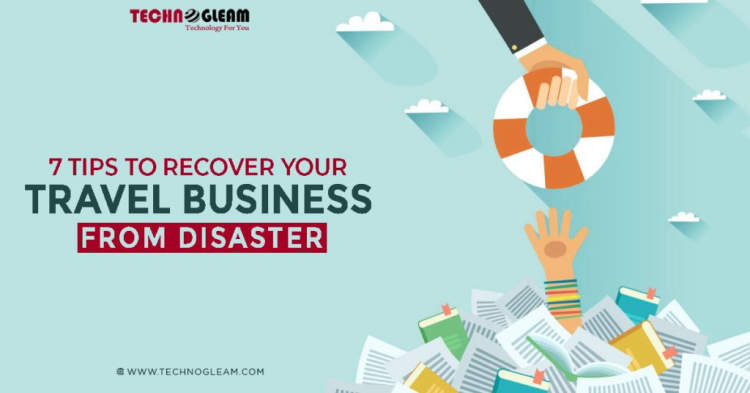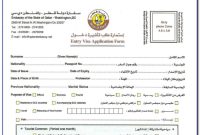Since the outbreak of the coronavirus the corporate travel industry has suffered a drastic decrease in activity, with companies of all sizes struggling to make up for the lost revenues while also operating within the confines of increasingly stringent health and safety regulations. However, there is no reason to believe that recovery in corporate travel is out of reach. This article looks at some expert strategies to ensure that corporate travel recovery processes can be speedily implemented and take full advantage of market opportunities.
The key factor driving the recovery of corporate travel is the clear price advantage that has been established for customer travel. By taking advantage of lower costs and being able to distribute more of their travel budget across more travellers, businesses can ensure a leaner and more efficient approach to corporate travel motions. Combined with the increased security that comes from booking official trips through corporate travel agencies, it is clear that businesses need to understand the market’s dynamics in order to make informed decisions.
Tips for Restarting Corporate Travel
As the pandemic declines and companies plan to put corporate travel back on the agenda, here are some of the key steps to ensure a successful return. To prepare for the restart of corporate travel, employers and employees need to feel comfortable and secure as they resume travel.
Creating a strategy to navigate the restart of corporate travel and effectively minimize the risk of disruption requires an integrated approach incorporating key risk management steps.
1. Understand Your Risk Profile
The first step in restarting corporate travel is understanding the unique risk profile of your organization and where any potential weaknesses could lie.
A comprehensive risk assessment provides a detailed view of diverse elements including the following:
- Destinations employees will be travelling to
- Overview of duties each employee is able to fulfill during travel
- Itineraries and the overall volume of travelers
- Visas, tours, and contractual obligations
- Legal and compliance regulations applicable to the organization
2. Create Clear Guidelines
Once you understand your risk profile, you will need to create clear travel policies and protocols that each employee is required to follow.
This includes currency exchange, hotel bookings, transport options, time in transit, and potential travel restrictions or expected safety measures while visiting destinations around the world.
3. Monitor Relevant Data
The chaos of the past year has put a spotlight on the need for an agile, data driven program that keeps track of travel warnings from government agencies and health experts to ensure travelers aren’t put in harm’s way.
By regularly monitoring data such as travel alerts, advisories, quarantine requirements, health protocols, and pending legislation, you can ensure you are keeping up to date with rapidly changing requirements.
4. Provide Resources to Employees
To successfully ensure corporate travel recovery, employers need to put the necessary protocols and resources in place to protect employees. Companies should ensure travelers have access to health resources, such as tests and treatments, in the destination or countries they are visiting.
It is also important to provide travelers with lifestyle-related resources, such as virtual gym memberships or access to online wellness sites, to help them maintain their routines while on the road.
5. Review Your Business Continuity Plan
As part of the strategy for restarting corporate travel, companies should have a Business Continuity Plan (BCP) that includes specific travel continuity protocols. These protocols will help companies scale their travel policies if the pandemic continues or worsens.
The BCP will provide the framework for responding to any potential disruptions with a set of activities and objectives to help keep operations running smoothly, from incident assessment and recovery planning to approaches for managing travel expenses.
Preparing Your Small Business for Travel Resumption
As the world begins to emerge from the pandemic, companies are scrambling to prepare for travel resumption. While larger corporations may have large teams to make sure that their corporate travel safely resumes, small businesses may not have such resources. However, it’s still crucial for them to make sure their business is ready to resume travel.
Here are some expert tips for small businesses owners to ensure that their travel resumes safely:
Know Your Government Regulations
Make sure that you are up to date on the latest travel regulations and restrictions. The pandemic has led to an unprecedented level of policy shifts, so you need to be as informed as possible so that you can create a cohesive and safe travel plan. Check with your local government to stay on top of the latest updates that could affect your business.
Plan Ahead of Time
Depending on the scale of your travel plans, it may be necessary to create a detailed itinerary that outlines tasks, timelines, and safety measures that must be taken. Make sure that each of your employees is aware of the guidelines and is prepared to follow them. Planning ahead of time can also help reduce potential problems that could arise during a business trip.
Invest in Training
Ensure that all of your staff is up to speed on the latest protocols related to travel. Depending on the size of your company, you may need to hire consultants to provide expertise in areas such as safety and risk mitigation. Additionally, provide guidance and training on how to deal with any potential health issues that may arise during travel.
Invest in Technology
Technology can play a major role in ensuring that corporate travel resumes safely. Invest in tools and software that can help with monitoring employee health and safety while in transit. Investing in the right technology can also help with tracking employee progress and logistics planning.
Ensure Sufficient Insurance Coverage
Make sure that your company is adequately insured in case any unforeseen problems arise during travel. Most insurance companies offer travel-specific packages that can help cover possible medical or emergency care, as well as losses in case of delay or disruptions.
Mental Health & Wellness When Traveling
Maintaining mental health and wellness when traveling can become overwhelming, especially if you are taking a long business trip. The stresses of traveling, combined with work and personal obligations, can cause anxiety or depression. Fortunately, there are several strategies you can use to ensure that your corporate travel trainees or delegates are able to stay mentally healthy and safe while on the road.
Strategies to Maintain Mental Health and Wellness
- Take time for self-care. It’s important to take time to rest and recharge while’s traveling. Schedule time to relax, mediate, or do something that makes you feel happy.
- Communicate regularly. Being away can often make us feel distant from our friends and family. Make sure to keep everyone you care about updated on your trip by staying in contact. Additionally, take time to connect with locals to get a sense of community in a new place.
- Be mindful of your diet. Eating healthy when traveling can be a challenge, but it is important for maintaining mental health and wellness. Make time to research healthy restaurants and grocery stores in the area that provide wholesome meals.
- Exercise in the outdoors. Traveling can leave you feeling sluggish. To combat this, take time every day to engage in physical activity outdoors. This can improve your mood and increase your energy.
- Bring a souvenir. Souvenirs can serve as reminders of your travels for many years to come. Purchasing a small trinket from each city you visit can help you capture the experience.
By following these strategies, corporate travel trainees or delegates can stay healthy and safe while having the opportunity to explore the new places. Employers can also make sure their employees are taking these necessary precautions by providing mental health and wellness resources to address any issues they may have while on the road.
Tips for Supporting Travelers With Disabilities
For the corporate travel industry to recover from the impacts of the COVID-19 pandemic, it is essential to support travelers with disabilities in addition to providing global health and safety protocols in all stages of a trip. There is not only a legal responsibility to do so but also a moral requirement. Here are expert strategies to ensure corporate travel recovery can include travelers with disabilities:
Provide Awareness & Training:
Corporate travel companies should provide training and awareness to employees on how best to support travelers with disabilities and make them feel welcome. Training should cover topics such as the Americans with Disabilities Act (ADA), understanding individual needs, and various accommodation options.
Stay Up-to-Date:
Corporate travel companies should stay up-to-date with the latest changes in laws and regulations that may affect travelers with disabilities. This includes staying informed on changes to accessibility regulations in different areas of the world. It is also important to maintain relationships and partnerships with airlines and other suppliers that have policies and protocols in place for supporting travelers with disabilities.
Ready With Options:
Travel companies should have a range of options available to travelers with disabilities, such as accessible accommodations, transportation, and other facilities. It is also important to be aware of and respect the needs of the individual, and provide the necessary levels of support and assistance that they require.
Build Awareness with Partners:
It is important that corporate travel companies reach out to their partners to ensure that they are aware of the needs and rights of travelers with disabilities. This includes hotels, restaurants, and other suppliers that need to be educated on how to best serve travelers with disabilities.
Provide Comprehensive Support:
It is important for corporate travel companies to provide comprehensive support for travelers with disabilities. This can include help with bookings, arranging various accommodations according to specific needs, and providing assistance throughout the journey.
Embrace Technology:
Corporate travel companies should embrace technology and make use of solutions and tools that can help make travel easier and more accessible for travelers with disabilities. This includes utilizing virtual and augmented reality, as well as engaging in conversations with travelers through various digital channels.
Leverage Resources:
There are a range of online resources available that can help corporate travel companies stay informed and up-to-date on the needs of travelers with disabilities. This includes understanding accessibility regulations in various countries, working with local and international organizations that are dedicated to supporting disability travelers, and reading resources from government and non-profit websites.
Conclusion:
By following these expert strategies, corporate travel companies can ensure that their recovery regimens include travelers with disabilities. This will contribute to enhancing their customer experience and promote a more inclusive travel industry.
A Plan for Corporate Travel Recovery
As the world gradually recovers from the COVID-19 pandemic, all establishments, including businesses, must devise a plan for corporate travel recovery. Companies must use the expert strategies outlined in the article to ensure successful and safe corporate travel. These strategies include conducting thorough research and preparation, creating a secure travel safety plan, and developing risk management protocols. By implementing these strategies, companies can reduce the risk of disease and create a safe and successful corporate travel experience.
Now that the world is slowly moving towards normalcy, companies must acknowledge the importance of corporate travel recovery. Employing the right strategies will help ensure faster and safe travel recovery for the future. Companies must prioritize travelers’ safety and be aware of country regulations to ensure that all travels are successful an enjoyable.




